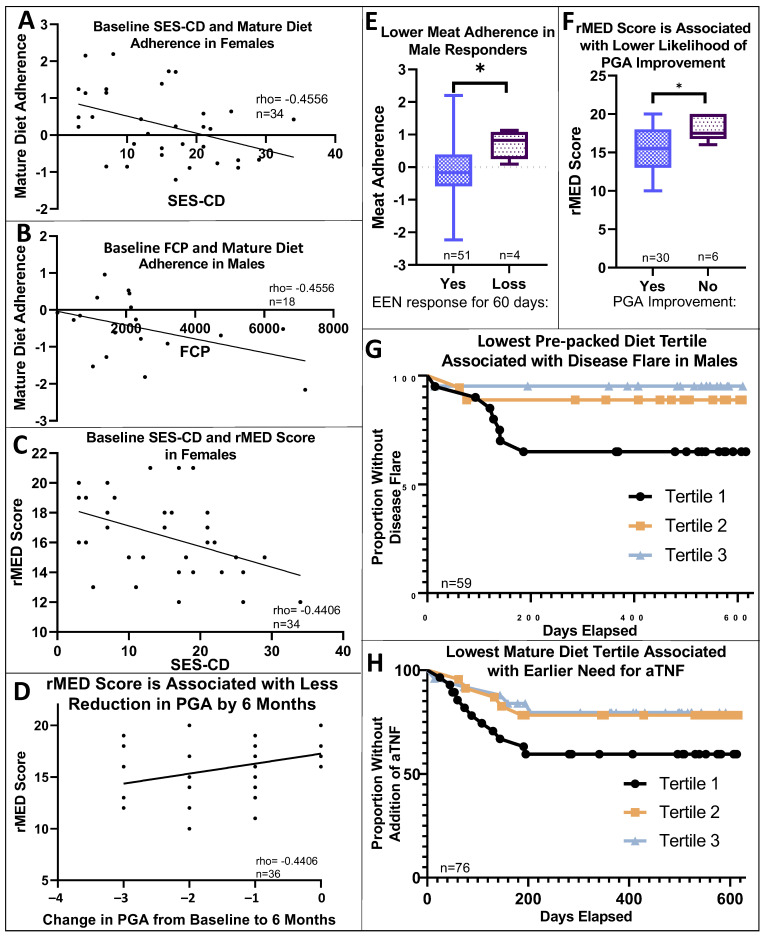Figure 2.
Dietary associations with baseline and long-term clinical outcomes. (A): Mature diet adherence was negatively associated with SES-CD score at baseline in females. (rho = −0.4556, p < 0.05, n = 34 with relevant data available). (B): Mature diet adherence was negatively associated with baseline FCP in males (rho = −0.4556, p < 0.05, n = 18). (C,D): rMED score was negatively associated with SES-CD score at baseline and showed a smaller reduction in PGA in females. (rho = −0.42, p < 0.05, n = 34, rho = −0.4406, p < 0.01, n = 36, respectively). (E): Higher meat adherence was associated with a loss of response to EEN in males (p < 0.05). (F): A higher rMED score was associated with a decreased likelihood to show improvement in PGA from baseline to six months. (G): Lower adherence to a pre-packaged diet was associated with earlier development of disease flare in males, p < 0.05, n = 59. (H): Lower adherence to a mature diet was associated with an earlier need for anti-TNF, p = 0.086, n = 76. * = p < 0.05, tertile 1 = lowest adherence, tertile 3 = highest.

